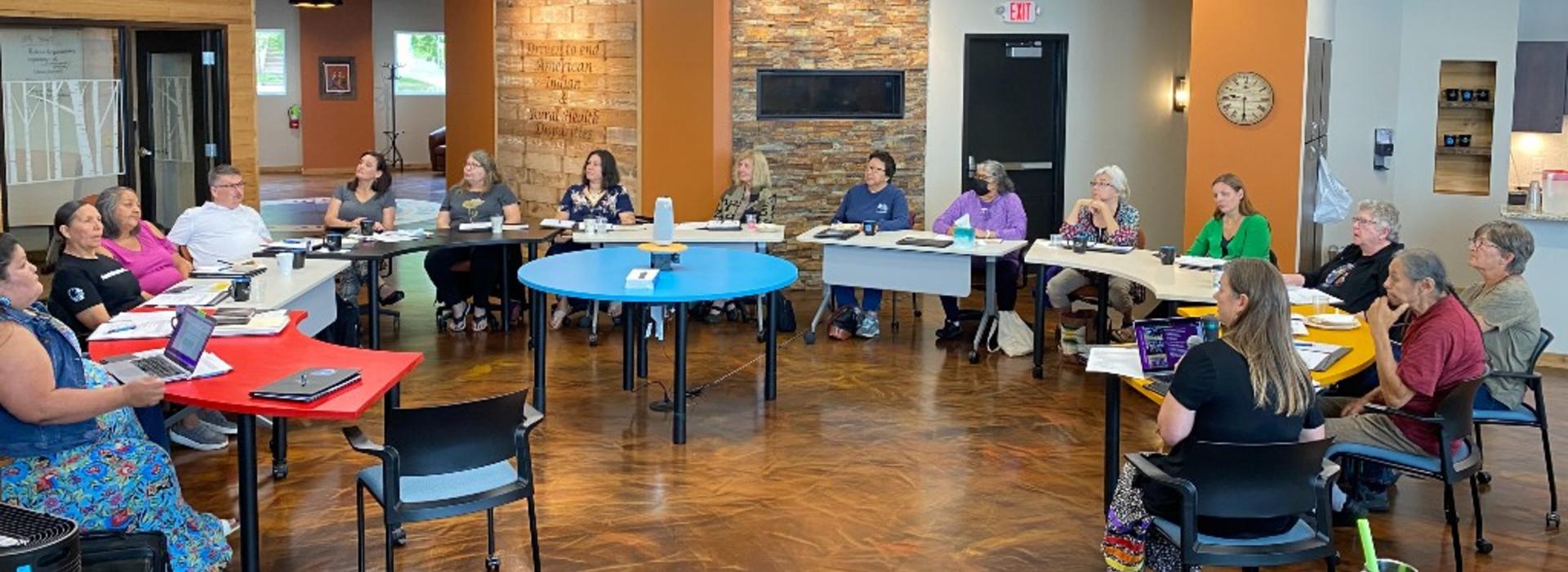
U of M Medical School, Duluth Campus helps boost Blue Ridge ranking
DULUTH (03/02/2023) — The University of Minnesota Medical School was recently announced as the No. 21 most funded medical institution in the country and No. 8 among all public U.S. medical schools in 2022, receiving over $341M from the National Institutes of Health (NIH) according to the latest Blue Ridge Research Rankings. The Memory Keepers Medical Discovery Team (MK-MDT) on Rural and Native Health at the Duluth Campus played an important role in the University of Minnesota Medical School’s jump in ranking.
“I'm extremely proud of the work of Duluth's Memory Keepers Medical Discovery Team. This team has become a premier research hub and their work keeps a spotlight on important health issues associated with dementia in Indigenous and rural communities,” said Kevin Diebel, PhD, interim regional campus dean of the University of Minnesota Medical School, Duluth Campus. “I’m eager to see their impact in addressing these health disparities continue to grow."
The Memory Keepers MDT was created to drive the state's vision for discovery to address health disparities, further elevating the University of Minnesota Medical School's position as a leader in Indigenous health equity research. Their focus is on rural and tribal communities, where — for unknown reasons — memory loss is growing at much higher rates than in our urban areas.
In the last two years, MK-MDT was awarded two large grants from NIH, representing a total investment of $17 million over five years that will directly benefit Tribal Nations in Minnesota and beyond. This includes a large NIH ICARE Project grant of $7.5 million over five years.
“These research programs will improve our understanding of cultural influences on the understanding of dementia and the experience of dementia for Indigenous peoples. We can translate that knowledge into tools and resources that will improve quality of life for those living with dementia and their caregivers,” said Kristen Jacklin, PhD, a professor and executive director of the Memory Keepers Medical Discovery Team.
This team is tied closely to Indigenous communities that are guiding their research focus on care issues of particular concern to their families. Within Indigenous communities, many see dementia as a part of life — a period of life to be respected and supported - an important concept to understand for those health professionals providing care.
Their team is also developing clinical interventions that will help ensure clinical tools and procedures used to diagnose dementia in Indigenous populations are culturally fair, culturally safe and trauma informed.
This project is being conducted in partnership with the Red Lake Nation and the Grand Portage Band of Lake Superior Chippewa, Drs. Carey Gleason and Megan Zuelsdorff from the University of Wisconsin-Madison and the Oneida National Commission on Aging.
The Blue Ridge Institute for Medical Research is a nonprofit organization that ranks U.S. medical schools by NIH grant awards each year. This metric is a strong indicator of the U of M Medical School’s mission to provide clinical, research and educational excellence that ultimately positively impacts the people of Minnesota.
Since 2021, the Medical School has seen a 50% increase in NIH funding, and the average grant size increased from $461k to $615k per grant with 554 grants funded. This amount represents the most NIH funding the Medical School has received in over 30 years and is an exciting accomplishment for the talented and driven faculty and staff, whose innovative work moves our institution, and our state, forward every day.
###
About the University of Minnesota Medical School
The University of Minnesota Medical School is at the forefront of learning and discovery, transforming medical care and educating the next generation of physicians. Our graduates and faculty produce high-impact biomedical research and advance the practice of medicine. We acknowledge that the U of M Medical School, both the Twin Cities campus and Duluth campus, is located on traditional, ancestral and contemporary lands of the Dakota and the Ojibwe, and scores of other Indigenous people, and we affirm our commitment to tribal communities and their sovereignty as we seek to improve and strengthen our relations with tribal nations. For more information about the U of M Medical School, please visit med.umn.edu.
For media requests, please contact:
Alex Smith, Media Relations Specialist: a-smith@umn.edu